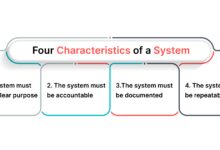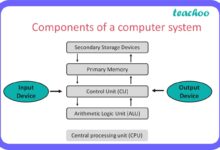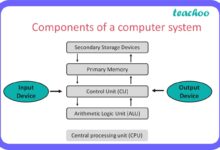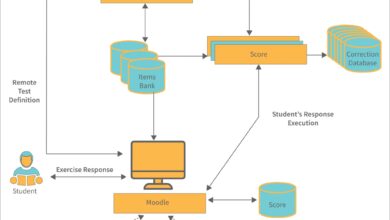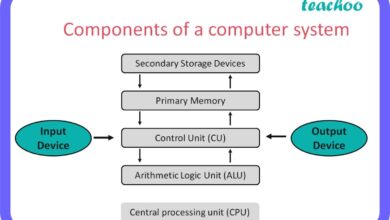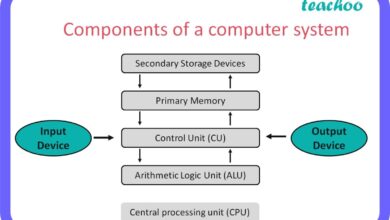System Mechanic: 7 Powerful Secrets to Boost PC Performance
Ever felt your computer slowing down like it’s running through mud? You’re not alone. A solid system mechanic strategy can breathe new life into your sluggish PC—fast, effective, and without spending a dime on hardware.
What Is a System Mechanic and Why It Matters

The term system mechanic might sound like something from a sci-fi movie, but in reality, it refers to the practices, tools, and software used to maintain, optimize, and repair your computer’s operating system. Think of it as a digital mechanic for your PC—someone who tunes up the engine, replaces worn parts, and ensures everything runs smoothly.
Defining System Mechanic in Modern Computing
In today’s digital world, a system mechanic isn’t just a person—it’s also a category of software designed to automate maintenance tasks. These tools scan for errors, clean up junk files, defragment disks, and optimize startup processes. The goal? To keep your system running at peak performance.
Popular examples include iolo’s System Mechanic, CCleaner, and Glary Utilities. While some are paid, many offer free versions with robust features.
Evolution of System Mechanic Tools Over Time
Back in the early 2000s, system maintenance was largely manual. Users had to run Disk Cleanup, defragment drives, and edit the registry themselves. Over time, system mechanic software evolved to automate these tasks, making PC optimization accessible even to non-tech-savvy users.
- 1990s: Manual maintenance using built-in Windows tools.
- 2000s: Rise of third-party optimization tools like Norton Utilities.
- 2010s: AI-driven optimization, real-time monitoring, and cloud-based diagnostics.
- 2020s: Integration with cybersecurity, privacy protection, and performance tuning.
“A well-maintained system doesn’t just run faster—it lasts longer and is more secure.” — Tech Maintenance Expert, 2023
Core Functions of a System Mechanic Tool
Every effective system mechanic software performs a set of core functions. These aren’t just about speed—they’re about stability, security, and longevity. Let’s break down the essential features.
Registry Cleaning and Optimization
The Windows registry is a database that stores settings and options for the OS and installed applications. Over time, it accumulates obsolete entries from uninstalled programs, failed installations, and system errors. A bloated registry can slow down boot times and cause crashes.
A system mechanic tool scans the registry for invalid entries and safely removes them. However, caution is key—overzealous cleaning can break your system. That’s why reputable tools like iolo use intelligent algorithms to avoid deleting critical entries.
Disk Cleanup and Junk File Removal
Every time you browse the web, download files, or install software, your system generates temporary files, cache, and logs. These files pile up and consume valuable disk space.
A system mechanic performs deep disk cleanup by identifying and removing:
- Temporary internet files
- System cache
- Old Windows update files
- Recycle Bin contents
- Application logs
This not only frees up space but also improves system responsiveness.
Startup Manager and Boot Optimization
One of the biggest culprits behind slow boot times is too many programs launching at startup. A system mechanic includes a startup manager that lets you disable unnecessary apps from launching when Windows starts.
For example, you might not need Spotify, Discord, or cloud storage apps running in the background the moment you log in. Disabling them can cut boot time by 30–50%.
How System Mechanic Improves PC Speed and Stability
Speed isn’t just about how fast your CPU is—it’s about how efficiently your system uses its resources. A system mechanic enhances performance through intelligent resource management.
Real-Time Performance Monitoring
Advanced system mechanic tools offer real-time monitoring of CPU, RAM, disk usage, and network activity. This helps identify resource-hogging processes before they cause lag or crashes.
For instance, if a background process is using 90% of your CPU, the tool can alert you or automatically throttle it. This is especially useful for gamers and professionals running heavy applications.
Memory Optimization and RAM Management
RAM is your computer’s short-term memory. When it’s full, your system starts using the hard drive as virtual memory, which is much slower. A system mechanic can optimize RAM by:
- Clearing unused memory
- Prioritizing active applications
- Preventing memory leaks
This results in smoother multitasking and faster app switching.
Defragmentation and Disk Optimization
On traditional HDDs, files get scattered across the disk over time, leading to slower read/write speeds. A system mechanic defragments the disk, reorganizing files so they’re stored contiguously.
While SSDs don’t need defragmentation, they benefit from optimization techniques like TRIM command management and wear leveling—features included in modern system mechanic tools.
Security and Privacy Features in System Mechanic Software
Today’s system mechanic tools go beyond performance—they also protect your privacy and security. This is crucial in an era of data breaches and online tracking.
Secure File Deletion and Data Wiping
When you delete a file normally, it’s not really gone. It can be recovered using data recovery tools. A system mechanic offers secure deletion methods that overwrite the file multiple times, making recovery impossible.
This is essential for sensitive documents, financial records, or personal photos you want to erase permanently.
Browser Privacy Protection
Your browser stores cookies, history, and autofill data. While convenient, this data can be exploited by advertisers or hackers. A system mechanic can automatically clear this data or block tracking scripts.
Some tools even offer encrypted browsing modes or DNS protection to enhance online privacy.
Malware and PUP Detection
Many system mechanic tools now include basic malware scanners. They detect Potentially Unwanted Programs (PUPs)—software that isn’t technically malware but can slow down your system or display intrusive ads.
For example, toolbars, adware, and fake updaters are common PUPs. Removing them improves both performance and security.
Choosing the Right System Mechanic Tool for Your Needs
Not all system mechanic tools are created equal. Some are lightweight and free; others are feature-rich and paid. Choosing the right one depends on your needs, technical skill, and budget.
Free vs. Paid System Mechanic Tools
Free tools like CCleaner or BleachBit are great for basic cleanup. They handle junk files, registry issues, and startup management. However, they often lack advanced features like real-time monitoring, deep optimization, or customer support.
Paid tools like System Mechanic Pro offer:
- Automated performance tuning
- Advanced registry repair
- Real-time resource optimization
- 24/7 technical support
If you’re a power user or rely on your PC for work, the paid version is often worth the investment.
Compatibility with Operating Systems
Most system mechanic tools support Windows 10 and 11. Some also work on older versions like Windows 7 or 8.1, though support is dwindling as Microsoft ends updates.
Mac users have fewer options, but tools like CleanMyMac X offer similar functionality. Always check compatibility before downloading.
User Interface and Ease of Use
A good system mechanic should be intuitive. Look for tools with:
- Clear dashboards
- One-click optimization
- Customizable settings for advanced users
If the interface is cluttered or confusing, you might miss important alerts or accidentally change critical settings.
Common Myths and Misconceptions About System Mechanic
Despite their benefits, system mechanic tools are often misunderstood. Let’s debunk some common myths.
Myth: System Mechanic Can Fix Hardware Issues
No software can repair a failing hard drive, broken RAM, or overheating CPU. A system mechanic only addresses software and configuration issues. If your hardware is failing, no amount of optimization will fix it.
However, some tools can detect hardware problems—like high disk temperature or bad sectors—and alert you before a crash.
Myth: Registry Cleaning Is Always Safe
While registry cleaning can help, it’s not risk-free. Deleting the wrong entry can make Windows unstable or prevent programs from launching. That’s why you should always back up the registry before cleaning.
Reputable system mechanic tools do this automatically, but free or poorly coded software might not.
Myth: More Optimization Equals Better Performance
Over-optimizing can actually hurt performance. For example, aggressively limiting background processes might break essential services. Or, constantly defragmenting an SSD can reduce its lifespan.
A smart system mechanic uses balanced, adaptive optimization—not brute force.
Best Practices for Using a System Mechanic Effectively
To get the most out of your system mechanic, follow these best practices.
Schedule Regular Maintenance
Don’t wait until your PC slows down. Set your system mechanic to run weekly scans and cleanups. This prevents issues from piling up.
Most tools allow you to schedule tasks during idle times, so they don’t interfere with your work.
Monitor System Health Over Time
Use the reporting features in your system mechanic to track performance trends. If boot time is increasing or memory usage is spiking, it’s a sign something’s wrong.
Some tools generate monthly reports, showing improvements in speed, stability, and security.
Combine with Manual Maintenance
Automated tools are powerful, but they’re not perfect. Combine them with manual checks:
- Uninstall unused programs
- Update drivers and OS
- Check for malware with dedicated antivirus
- Physically clean dust from your PC
This hybrid approach ensures comprehensive care.
Future of System Mechanic: AI, Cloud, and Automation
The future of system mechanic is smarter, faster, and more integrated. Here’s what’s coming.
AI-Powered Optimization
Next-gen system mechanic tools use artificial intelligence to learn your usage patterns. They can predict when to clean up files, optimize memory, or restart services—before you even notice a slowdown.
For example, if you always run video editing software at 6 PM, the tool can pre-allocate resources to ensure smooth performance.
Cloud-Based Diagnostics and Updates
Cloud integration allows system mechanic tools to access real-time threat databases, performance benchmarks, and update patches. This means faster responses to new malware or system vulnerabilities.
It also enables remote monitoring—useful for IT administrators managing multiple machines.
Integration with Smart Devices and IoT
As homes and offices become more connected, system mechanic tools may extend beyond PCs to optimize routers, smart TVs, and even IoT devices. Imagine a tool that not only speeds up your laptop but also improves your Wi-Fi by optimizing router settings.
This holistic approach to digital wellness is the next frontier.
Is system mechanic software safe?
Yes, if you use reputable tools from trusted developers. Avoid downloading system mechanic software from third-party sites, as they may bundle malware. Stick to official websites like iolo.com or well-known platforms like Microsoft Store.
Can system mechanic fix a slow computer?
In most cases, yes. If the slowness is due to software bloat, junk files, or misconfigured settings, a system mechanic can significantly improve performance. However, it won’t fix hardware limitations like an outdated CPU or insufficient RAM.
Do I need system mechanic if I have antivirus?
Yes. Antivirus software protects against malware, but it doesn’t optimize performance or clean up junk files. A system mechanic complements antivirus by improving speed, stability, and privacy.
How often should I run system mechanic?
For best results, run a quick scan weekly and a full optimization monthly. Many tools offer automatic scheduling, so you don’t have to remember.
Can system mechanic extend my PC’s lifespan?
Absolutely. By reducing system stress, preventing crashes, and optimizing resource usage, a system mechanic helps your PC run efficiently for years longer than an unmaintained one.
Keeping your PC in top shape doesn’t have to be complicated. With the right system mechanic strategy, you can enjoy faster boot times, smoother performance, and greater security. Whether you choose a free tool or invest in a premium suite, regular maintenance is the key to a long-lasting, reliable computer. Don’t wait for problems to arise—start optimizing today.
Recommended for you 👇
Further Reading:
